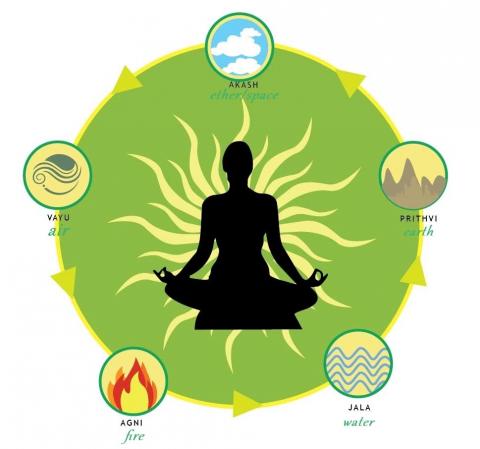Embracing Ayurveda: A Natural Path to Health and Longevity
Why You Have to Obtain It: The Transformative Power of Ayurveda Explained
Ayurveda, a classic system of medicine, provides a distinct point of view on wellness that goes beyond simple signs and symptom administration. By stressing the elaborate balance between spirit, body, and mind, it offers a structure for recognizing private constitution through the principle of doshas. This individualized method not only addresses physical ailments yet likewise cultivates psychological and spiritual health. As we explore the core principles and practices of Ayurveda, it becomes noticeable that its transformative potential expands far past traditional wellness standards-- raising the concern of how it could reshape your understanding of wellness.
Comprehending Ayurveda's Core Principles
Ayurveda, typically referred to as the "science of life," is rooted in a holistic approach to health and wellness that intertwines the physical, mental, and spiritual measurements of wellness. Central to Ayurveda are the principles of the five elements, known as "Pancha Mahabhuta," which consist of earth, water, fire, air, and ether. These aspects incorporate to develop three primary energies, or "doshas": Vata, Pitta, and Kapha, each standing for various mixes of physical and emotional features.


Understanding these doshas is crucial for identifying a person's one-of-a-kind constitution, or "Prakriti," which guides individualized health and wellness strategies. Ayurveda highlights balance, supporting for a way of life that harmonizes these energies with diet plan, natural solutions, and day-to-day routines. Moreover, Ayurvedic concepts assert that health and wellness is not simply the lack of condition yet a state of ideal vitality.
The practice of mindfulness and self-awareness is basic, motivating individuals to establish a deeper link with their bodies and the atmosphere. By recognizing the interplay of emotional and physical variables, Ayurveda promotes a thorough understanding of wellness that equips individuals to take charge of their well-being, cultivating a path towards holistic transformation.
Advantages of Ayurvedic Practices
Frequently integrating Ayurvedic techniques into everyday life can produce a wide range of advantages that enhance general health. These classic traditions concentrate on accomplishing harmony within the body, spirit, and mind, causing boosted physical health and wellness, psychological quality, and emotional balance.
One substantial advantage of Ayurvedic methods is their capability to promote digestion health and wellness. Customized nutritional recommendations, based upon an individual's dosha, can optimize vitamins and mineral absorption and decrease stomach concerns. In addition, Ayurvedic herbs and seasonings, such as turmeric and ginger, have anti-inflammatory residential properties that can aid in the prevention and monitoring of chronic conditions.
Moreover, Ayurvedic techniques highlight the relevance of day-to-day regimens, recognized as dinacharya, which foster stability and predictability in one's life. This consistency can reduce anxiety levels and improve efficiency. Mindfulness techniques, including meditation and yoga, not just grow mental durability but likewise enhance psychological guideline.
Last but not least, by promoting a connection to nature and stressing holistic living, Ayurveda urges individuals to take part in self-care and grow a sense of area. Overall, the assimilation of Ayurvedic methods can cause a much more well balanced, vibrant, and satisfying life.
Key Elements of Ayurvedic Recovery
At the core of Ayurveda lie three key elements: the idea of doshas, the focus on balance, and the all natural approach to wellness. The doshas-- Vata, Pitta, and Kapha-- stand for the one-of-a-kind combinations of the 5 components that govern specific constitutions.
Equilibrium is a persisting motif in Ayurvedic healing, showing the belief that health and wellness emerges from harmony within the body and between the specific and their atmosphere. Disturbance of this equilibrium can cause condition, demanding targeted treatments to check my blog recover equilibrium.
Furthermore, Ayurveda embraces a holistic technique, considering physical, psychological, and spiritual elements of wellness. This detailed perspective recognizes that emotional well-being and way of living options considerably affect physical wellness.
Integrating Ayurveda Into Every Day Life
Incorporating the concepts of Ayurveda into day-to-day live can significantly improve total health and advertise a deeper link to one's body and setting. By taking on Ayurvedic techniques, people can grow balance and harmony within themselves, adapting to their unique constitution or dosha.

Integrating herbal solutions and all-natural active ingredients into personal care routines can even more enhance Ayurvedic principles. Using oils for self-massage, recognized as abhyanga, advertises circulation and relaxation. Additionally, including reflection or yoga exercise can improve psychological clarity and emotional stability, promoting an all natural approach to wellness.
Finally, being mindful of environmental aspects, such as environment and seasonal adjustments, enables individuals to adjust their lifestyles accordingly, ensuring that their techniques remain helpful and reliable - Ayurveda. By weaving these concepts into day-to-day life, one can experience extensive benefits, causing an extra well balanced and fulfilling existence
Personal Changes Through Ayurveda
The application of Ayurvedic principles into everyday routines frequently results in considerable personal makeovers, as people start to experience profound shifts in both mental and physical health. By welcoming practices such as dietary modifications, organic supplements, and conscious reflection, numerous record raised energy degrees, improved digestion, and boosted psychological strength.
Individuals often discover that the all natural strategy of Ayurveda addresses not just symptoms, but underlying inequalities within the body and mind. As an example, adopting an individualized dietary regimen based on one's dosha can read this article bring about weight monitoring, minimized swelling, and much better total vigor - Ayurveda. The unification of everyday self-care rituals, such as oil drawing or Abhyanga (self-massage), cultivates a much deeper link to one's body, promoting self-awareness and supporting psychological wellness.
As experts delve deeper right into Ayurvedic ideology, they regularly find a restored feeling of function and clearness in their lives. This transformative trip encourages people to grow mindfulness, resulting in healthier relationships and a greater recognition for the present minute. Ultimately, Ayurveda equips individuals to take cost of their health, facilitating a meaningful and long-term change in their lives.
Final Thought
The transformative power of Ayurveda hinges on its all natural approach, advertising consistency amongst spirit, mind, and body. By recognizing private doshas and applying tailored practices, Ayurveda cultivates optimal health and emotional strength. Its assimilation right into day-to-day live motivates conscious living and much deeper connections within neighborhoods. Eventually, accepting Ayurveda can result in extensive individual transformations, boosting overall health and facilitating an extra unified and balanced existence. The concepts of Ayurveda offer beneficial insights for cultivating a fulfilling and dynamic life.
As we explore the core concepts and techniques of Ayurveda, it ends up being apparent that its transformative possible prolongs much past typical health and wellness paradigms-- increasing the question of exactly how it might improve your understanding of wellness.
Ayurveda, usually explained as the "scientific research of life," is rooted in an alternative approach to health and wellness that intertwines the physical, psychological, and spiritual dimensions of wellness. At the core of Ayurveda exist three key elements: the concept of doshas, the focus on balance, and the holistic strategy to wellness. Eventually, Ayurveda encourages individuals to take charge of their wellness, promoting a lasting and meaningful transformation in their lives.
By applying and acknowledging individual doshas tailored methods, Ayurveda promotes optimum health and emotional durability.